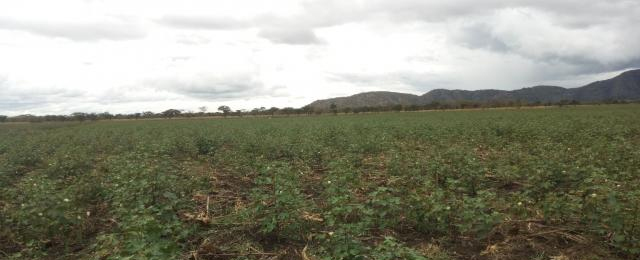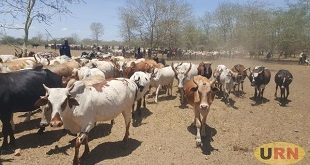
Amuru, Uganda | THE INDEPENDENT | Farmers in Acholi Sub Region have expressed worries over the unpredictable weather conditions ahead of this year`s planting season.
Unlike in the previous years, farmers in Acholi Sub Region would start opening their farmlands between the months of late January and March ready for the first planting seasons which starts by mid-March every year.
But this year, the majority of farmers in the region have not started ploughing their farmlands and preparations for this year`s planting season citing projected aridity.
They expressed fears over the changing weather patterns which they say is unpredictable and may leave them counting losses as it had been last year.
Last year almost all parts of the Acholi Sub Region experienced too much rainfall which was accompanied by hailstorms until in the late December.
This destroyed a number of crop gardens including cassava, beans, yams, sweet potatoes and maize although rice farmers yielded big.
But this year the weather pattern has changed with too much scorching sunshine and too much heat since January up to the month of March yet farmers were expecting early rainfalls to facilitate growth of their first seeds.
Geoffrey Opiyo, a farmer in Latoro Sub County Nwoya district told URN that he has already opened up 18.5 acres of his farmland to plant ground nuts and rice but the sunshine has left him puzzled and not he is not ready to put seeds in the ground.
Opiyo who had planned to plant ten acres of rice and 8.5 acres of ground nuts explains that his crops require much rainfall yet this is not the case this season.
Last year he realized 80 bags of rice from his five acres’ garden but he believes that this may not be the case this year.
John Bosco Oloya, a farmer in Pabbo Sub County Amuru district on the other hand has not started opening his garden this year basing on the fact that there are no signs of rainfall.
He had planned to plant beans, maize and rice but he says he is now stuck and undecided on whether to wait for the next planting season which starts in August.
Last year Oloya harvested nine bags of rice from his five acres’ gardens out of the expected 20 bags, he attributes this to the adverse weather conditions.
George Komagum, another farmer in Lagak Village also in Amuru district has already cleared two acres of his garden for this planting season but he is adamant to plant his seeds because of the too much sunshine and unexpected rainfall.
Komagum equally fears that his seeds, resources and efforts will go to waste since there are no signs of rainfall as experienced in the previous years.
In Omoro district, Janet Akello, a farmer in Bobi Sub County has not bothered to open up her farmland due to fear of wasting money and seeds.
Akello told URN that she had a nasty experience last year when her four acres of groundnuts and beans were soaked and destroyed by floods and hailstorms due to persistent rainfall.
Nighty Ayero, another farmer in Omoro appeals to the government to step up the sensitization of farmers on weather and climate changes for better planning and avoiding losses.
But, William Bongomin, a farmer teacher with Capable Uganda urged the farmers to embrace the use of weather Applications and make wise choices on the types of what crops to plant and when depending on the weather pattern.
Lillian Nkwenge, the Principal of Public Relations for the Uganda National Meteorological Authority (UNMA) advised the farmers to embrace the use of the Weather Information Dissemination System (WIDS).
WIDS is an Application developed by UNMA in partnership with Makerere University to help ordinary users to monitor weather forecasts.
The Application is accessible on all types of mobile phones and computers. For one to access on a mobile they are required to type*255*85# and follow prompts.
The five options include selecting a language of convenience, name of the district being sought, duration of the forecast, forecasts sector including crops, livestock, water, health and disaster management. All the selected options come with advisories.
Each request costs between 160 to 300 Shillings charged on the Short Messaging Services-SMS. If connected on the internet, a person is also required to browse through http://www.wids.mak.ac.ug/wids/ and follow the same options as applied to mobile phones.
Mary Nsabagwa, the Assistant Lecturer at the Department of Computing and Information and Communication Technology at Makerere University says that the Application is effective and accessible on all types of mobile phones and computers.
********
URN
 The Independent Uganda: You get the Truth we Pay the Price
The Independent Uganda: You get the Truth we Pay the Price


